Turkana feed me!
Phyllis Byrd serves with the Organization of Africa Instituted Churches (OAIC) in Kenya.
The preacher in me always starts my sermons with a title. The title according to my professors of theology is the “name of your sermon” it should capture the attention of the listener. This is not a sermon, nor is the title meant to capture the attention of the reader. The title is meant to be an encapsulation of the silent hunger we all embody. The title raises the question of who nourishes us.
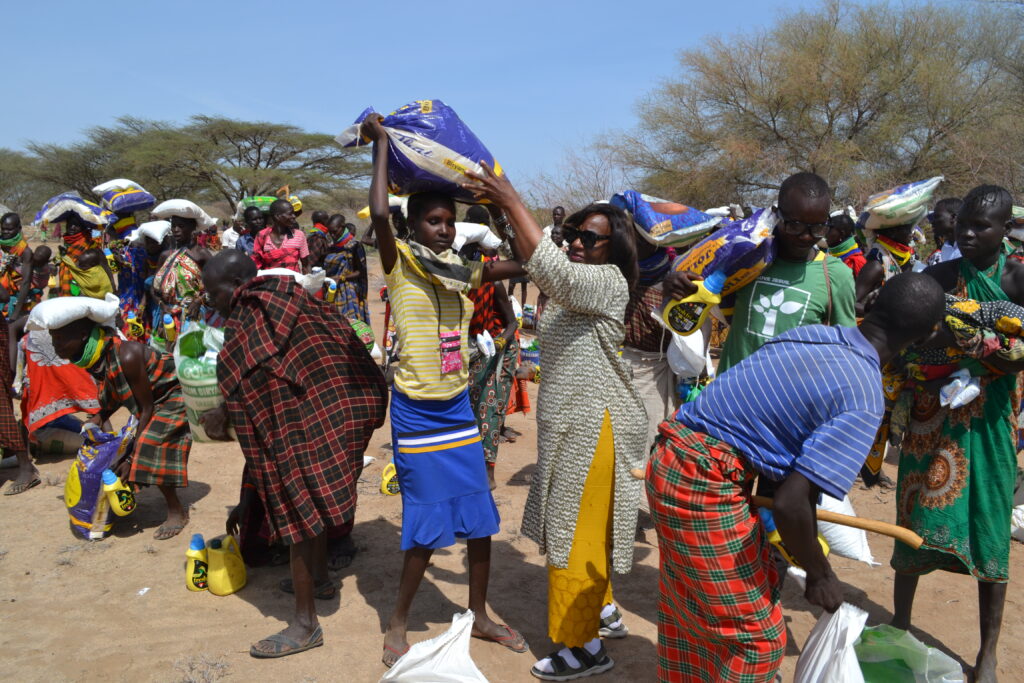
What is hunger? It is the gnawing feeling of empty sensation deep in your abdomen or, as my mother would say, ” deep in the pits of your belly.” It is the reality of no matter how hungry you are, there is no food or money to buy food. Hunger is this, plus so much more.
The local and international news reported almost on a daily bases the drought situation in arid and semi-arid regions in Kenya. The drought worsened according to a Citizen News reporter, the number of people facing starvation last year went from 3.5 million people reported in May to 4.1 million people in June. One of the worst-hit counties in Kenya is Turkana where people and livestock are dying on a daily bases. 33 percent of lactating mothers and children are malnourished in Turkana.
You might be wondering how can I say “Turkana feed me?” This sounds like an oxymoron in a region that has been deemed severely food insecure and people facing death and dying daily.
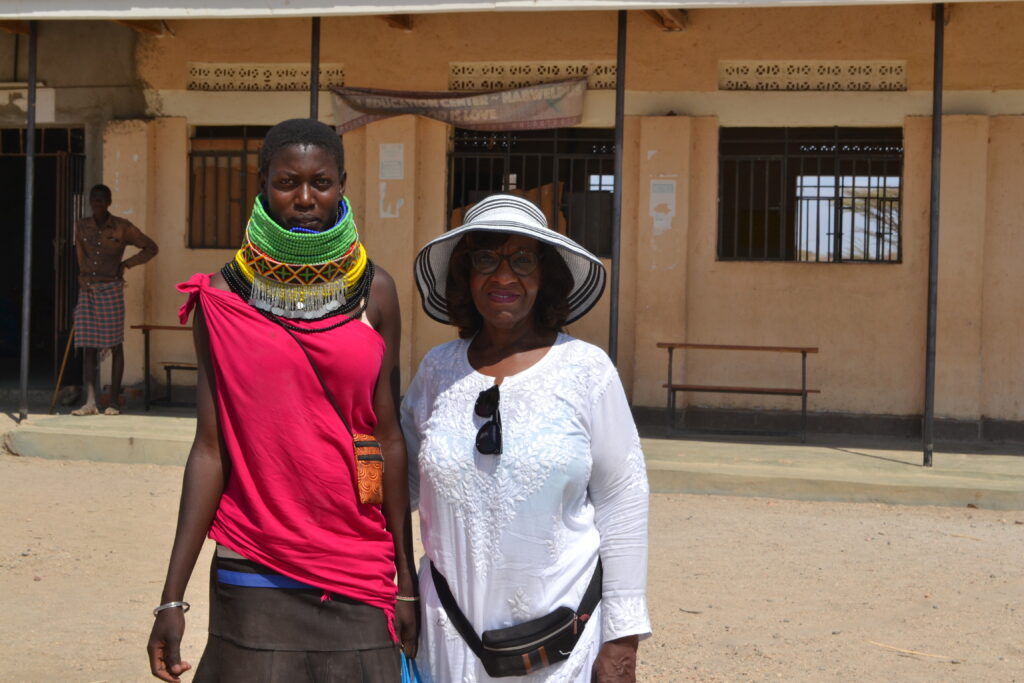
The OAIC has been in deep discussions about food insecurity in many African nations in general and the Horn of Africa in particular. The question we raised in our meetings is what can we do that would be impactful in this region? As photos of dying, people, the bones of cattle, and malnourished children were in the newspapers we needed to respond quickly. Food was urgently needed especially during the Christmas season when school-going children were home for the holidays. This put an extra challenge on families to feed the additional family members.
My colleagues and I spoke to the WHO, and World Health Organization regarding the food and health needs in the various areas of the country most affected by drought. We inquired about the type of food we should buy which would be most nutritionally beneficial to the people in various areas. Who do we speak to on the ground that can direct us to the counties/areas that are in the greatest need?
We wanted to make sure whatever food we shared was going to people that needed it the most. The WHO emphasized throughout our conversation, however little or much one gives it is important the food gets to the correct location and people. The areas that are most affected by the drought in Kenya are Mandera, Garissa, Wajir, Samburu, Tana River, Isiolo, Masarbit, Turkuna, and Kajiado, to name a few. They encouraged us to work with the people on the ground who works in the food distribution space. Also, speak to the County Government to see what is needed and who is the most venerable in the community. As we were winding up our conversation the WHO repeated, “make sure food is getting to the right people in this time of crisis. “ They suggested we get in touch with the Red Cross.
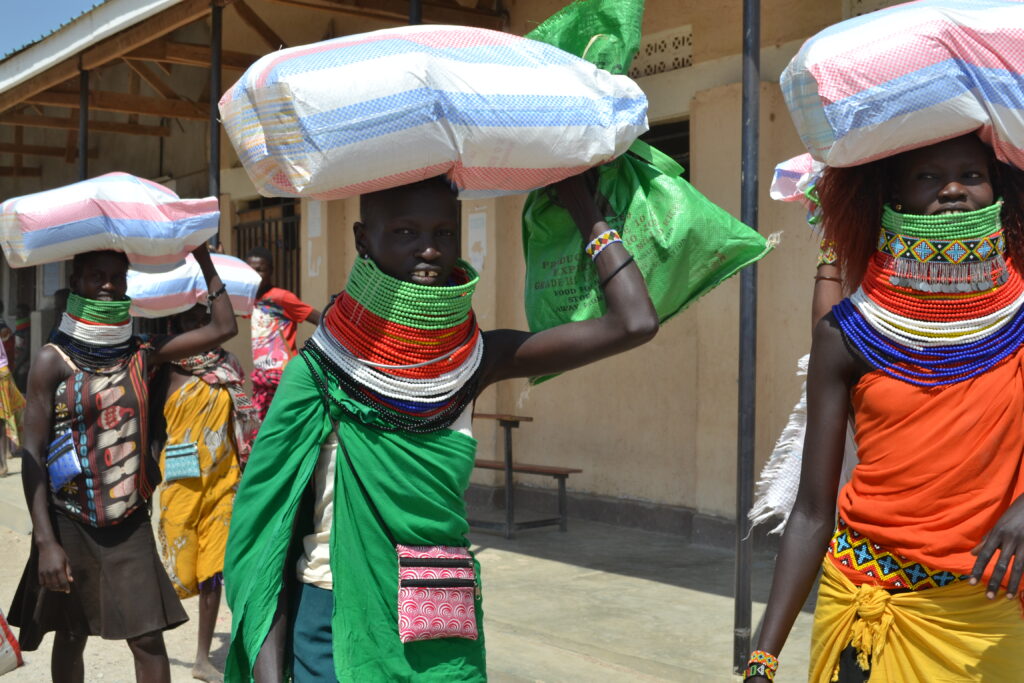
Red Cross? I thought to myself, we got this, we can do it on our own besides I don’t have any contacts at the Red Cross. On second thought, I will look up the number and give them a call, but If I get “the run-around,” forget it. The person who answered the phone at the Red Cross directed the call to Charles, the staff member in charge of Relief Response coordination. Charles said to me, “We are traveling to Turkana next week, why don’t you join us? I am taking an interfaith team for food distribution. You are welcome to join the team. ”
I joined the team traveling to Turkana on 17th- – 19th December. The team members were all strangers to me. We were all sent by our faith communities to respond to the crisis in Turkana but the Red Cross weaved us together. We all became friends, brothers, and sisters working together, no one cared about which group gave more food than the other group we were supporting each other.
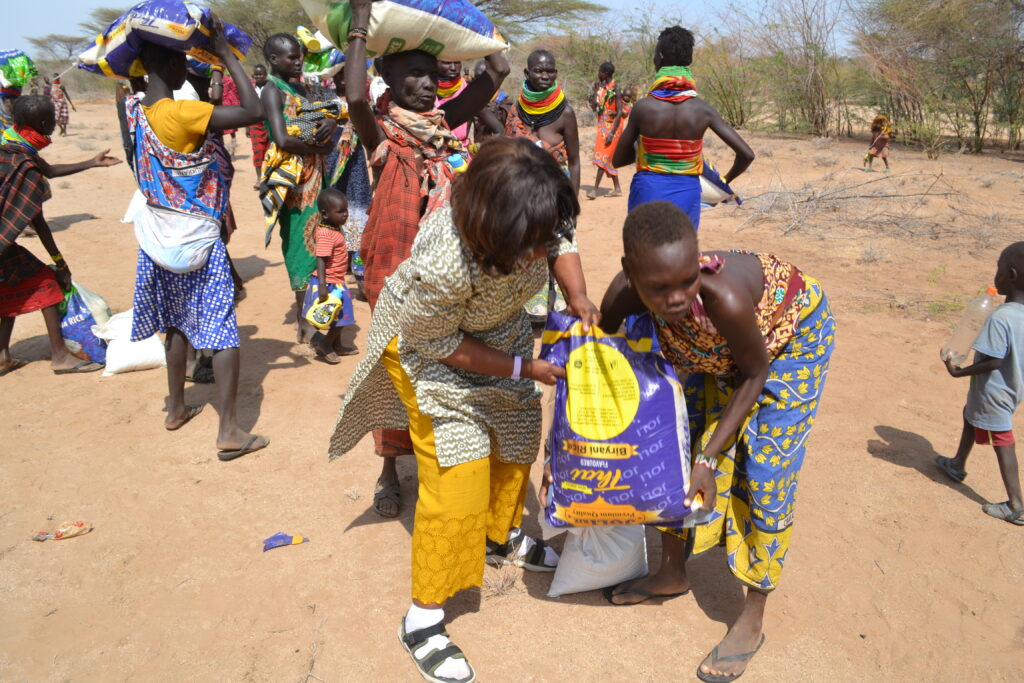
I was impressed with the detailed organization of the Red Cross team that worked on the ground in Turkana and the Nairobi office. I applauded the hard work of the volunteers of the Red Cross, each of the areas we went to had everything prepared. They worked closely with the local County Government officials, the trucks delivered the food, and the food was packed and put into rolls waiting on the people and for us to arrive. Each bag contained enough food for a family of 6 for 1 month.
While the people of Turkana received provisions for a month, they gave me/the OAIC, provisions to address the hunger within our bellies. The longevity of the food the people of Turkana shared with us if we absorb and process the nutrients can change the way we digest and understand our work. They gave us Food for thought about what is needed to achieve holistic development in the region. One young Turkana woman taught us a spiritual lesson that we can feast on and share with others for all eternally.
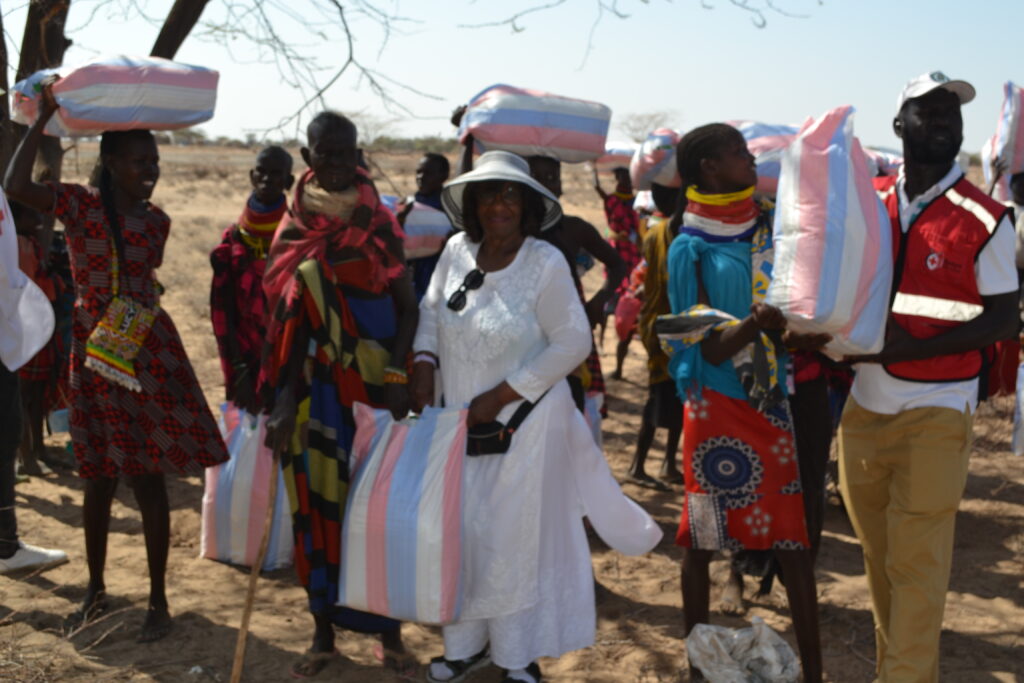
The bags of food were very heavy and I struggled to lift them on my own, Charles from the Red Cross assisted in lifting the bags. I noticed the young woman standing in front of me, instead of picking up her bag and leaving, she turned to the person on the right and picked up their bag, and put it on their head. She then turned to the person on her left and picked up her bag and placed it on their head. Then she picked up her own bag and placed it on her head before walking away. Wow, what a mouth full. We get so caught up, almost parlayed by our own baggage, issues, and concerns, we are at times monovision. The load was heavy, yet, this young Turkana woman paused, to assist the persons on her right and on her left side before even picking up her own parcel.
I did not know how hungry I was, or how undernourished I had become until I went to Turkana. Thank you, Red Cross. People of the Land of Turkan, Turkana brothers and sisters we have no words that are adequate to express our appreciation. We are looking forward to widening the circle as we listen to you and take your lead in addressing systemic and sustainable changes that may be critical for the development of the land of Turkana. If the OAIC, and other faith communities, want an impactful change in Turkana and other regions we must be willing to be fed by the people we seek to feed.
Phyllis Byrd serves with the Organization of Africa Instituted Churches (OAIC) in Kenya. Her appointment is made possible by gifts to Disciples Mission Fund, Our Church’s Wider Mission, and your special gifts.
